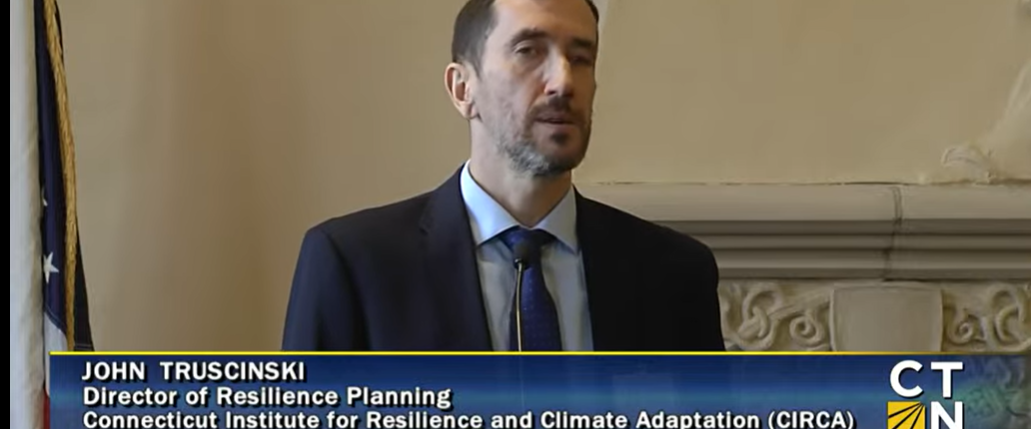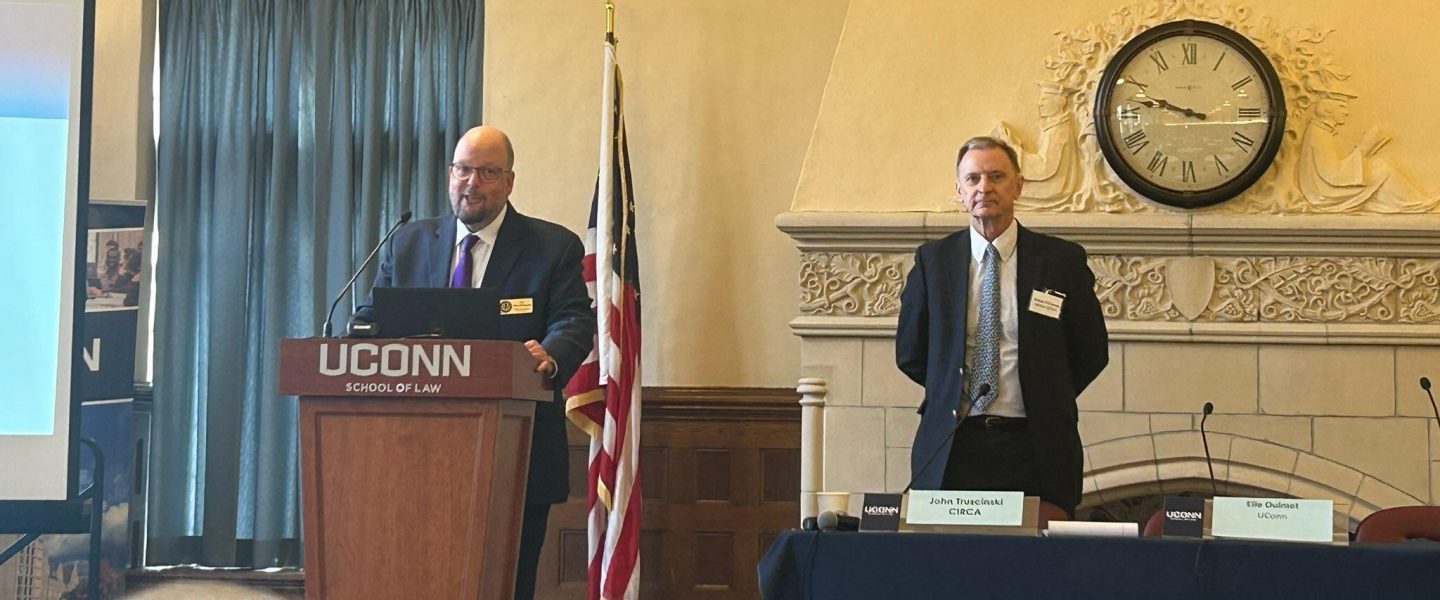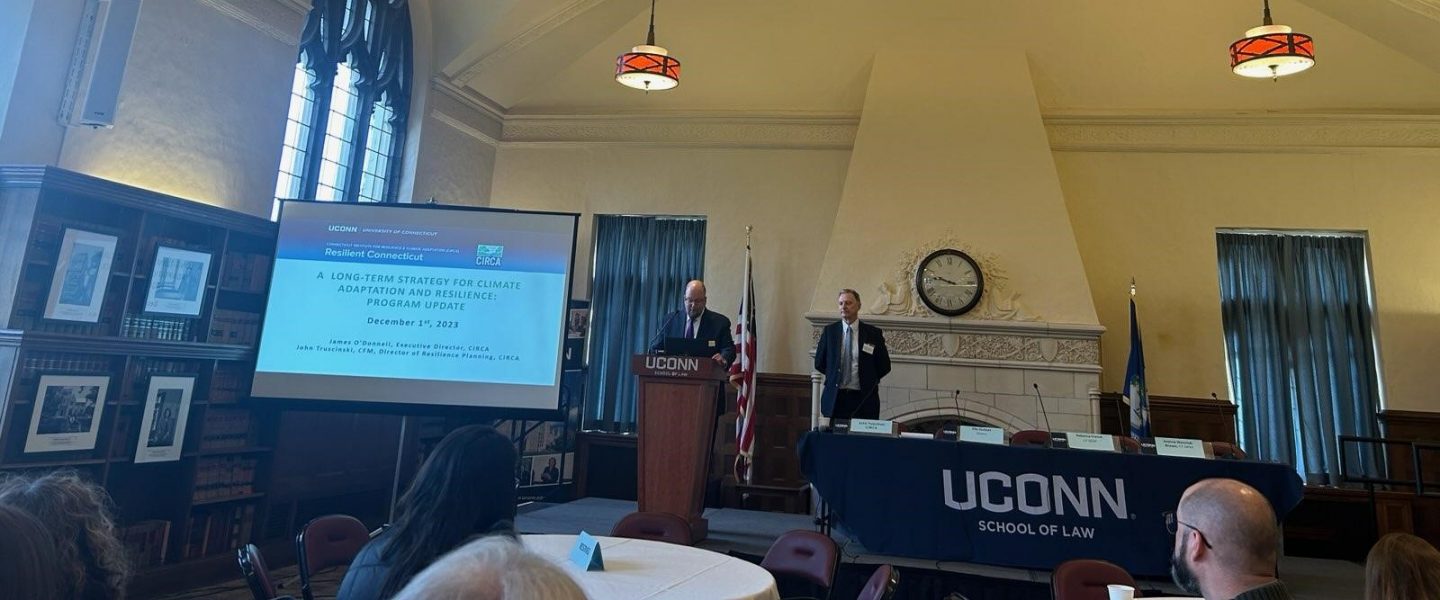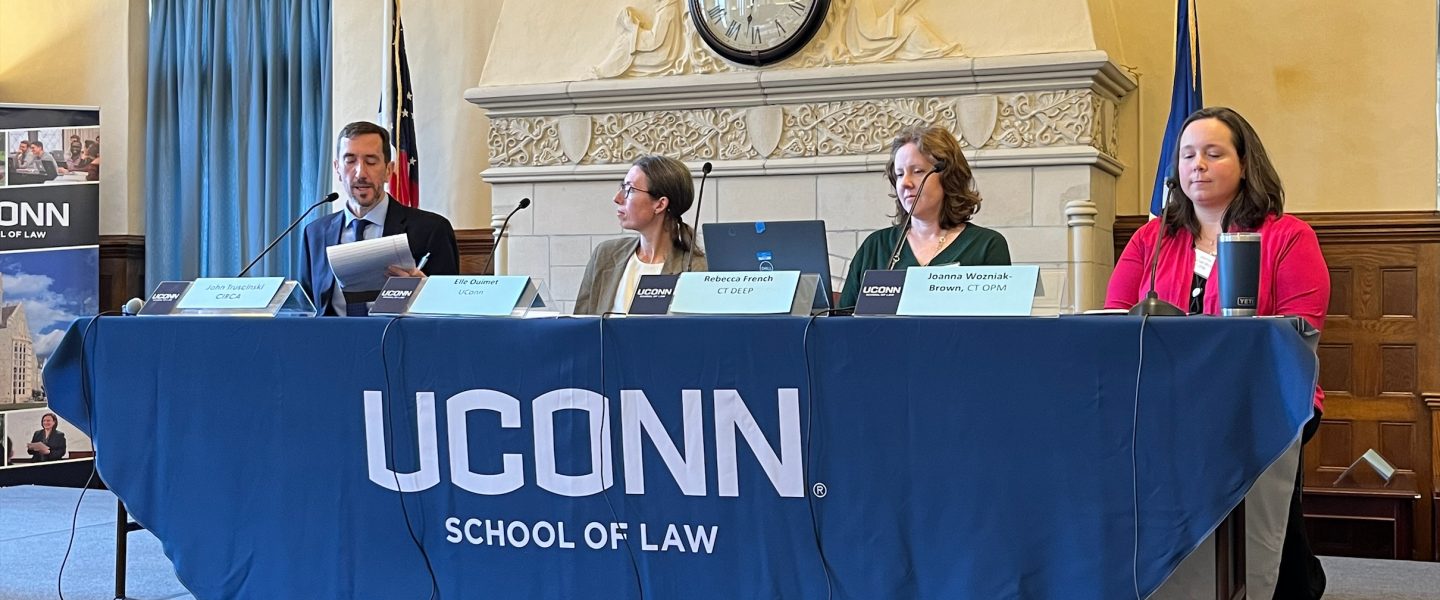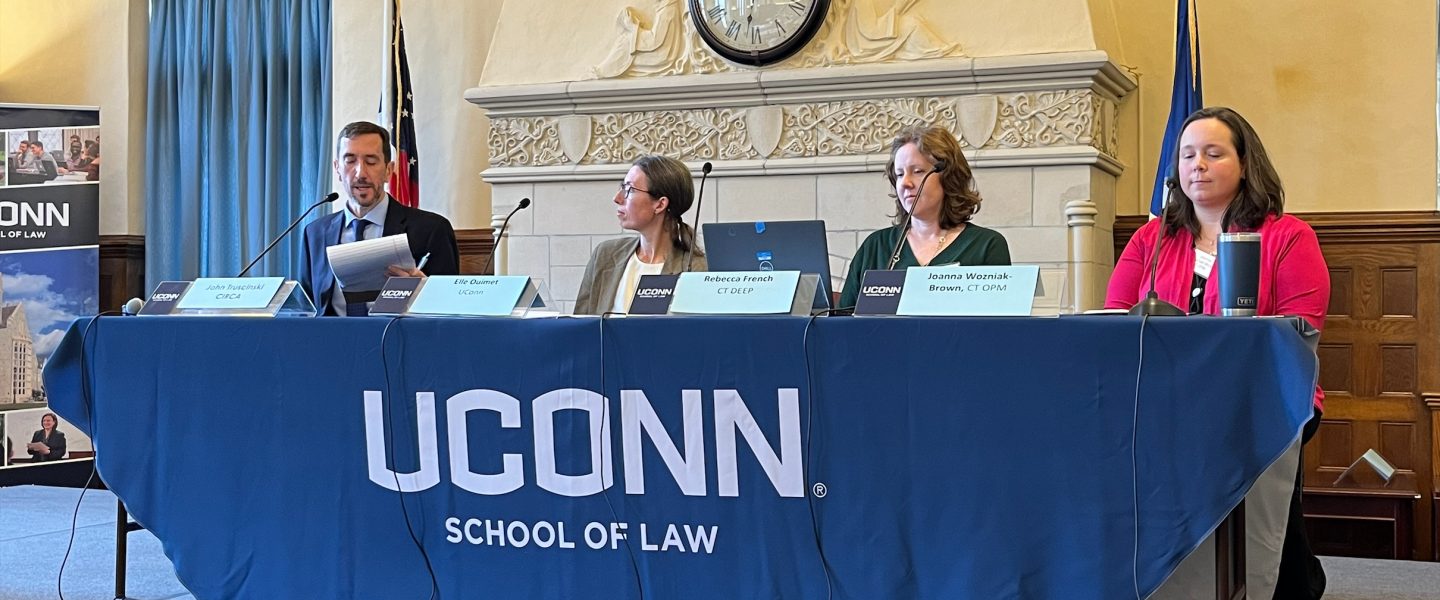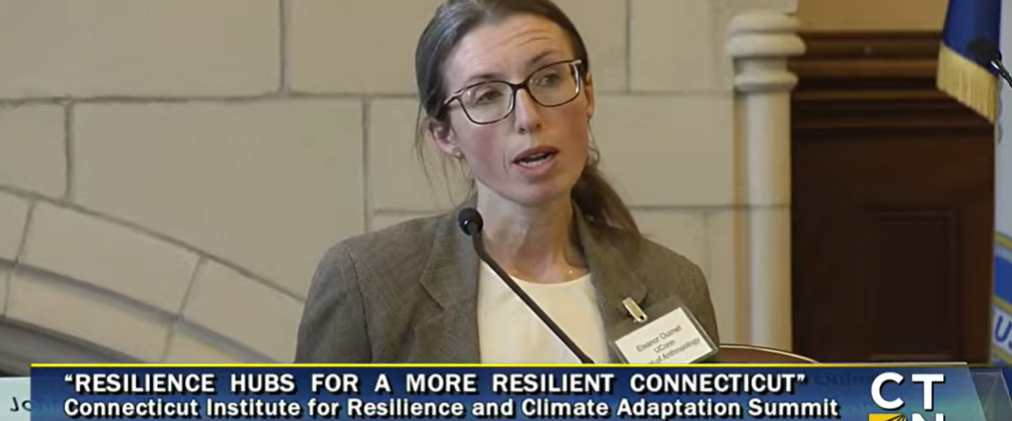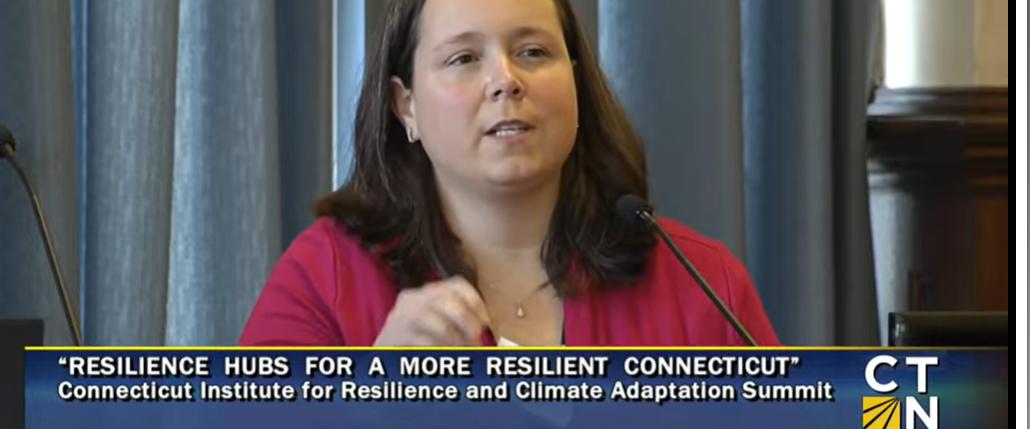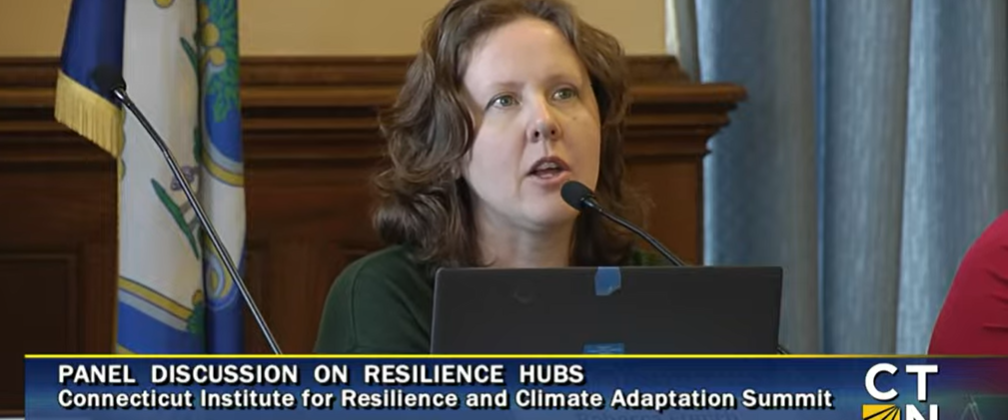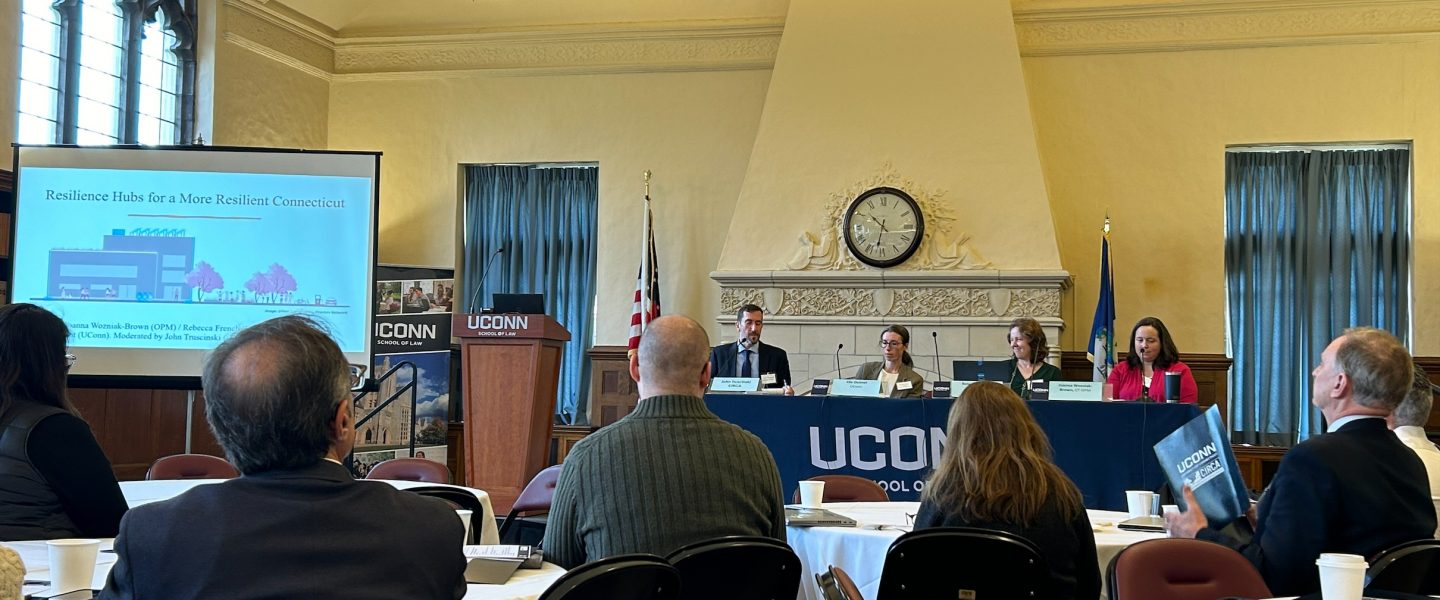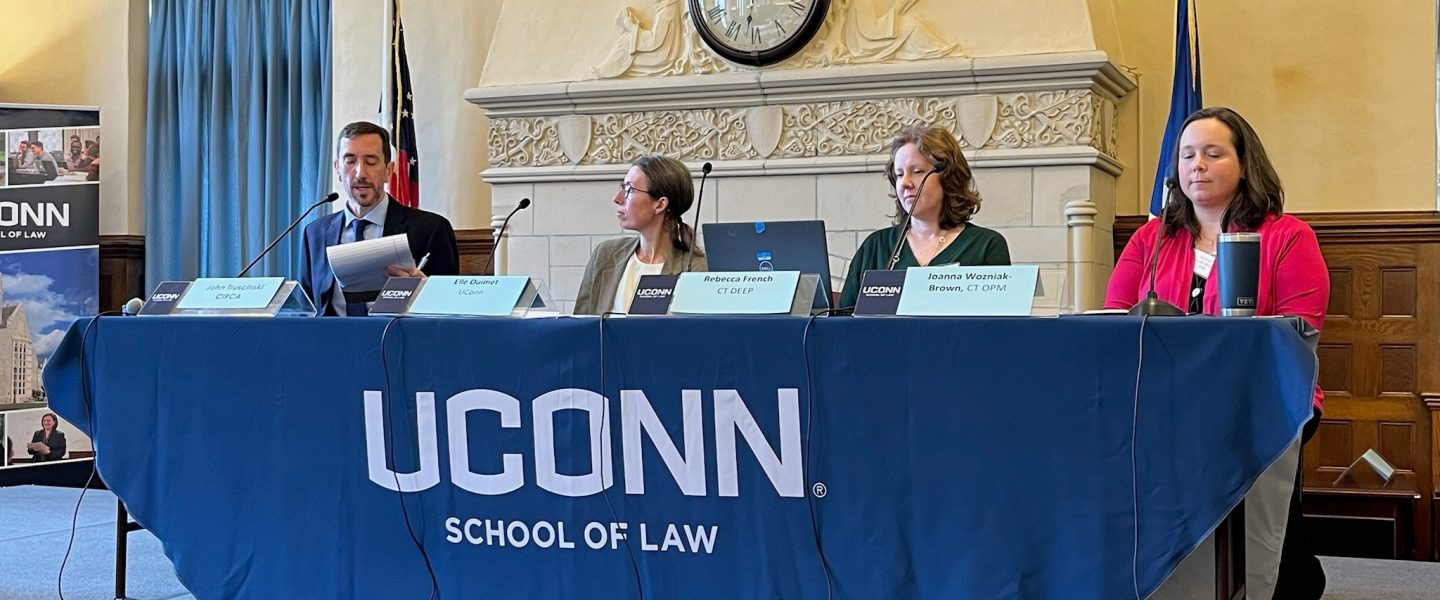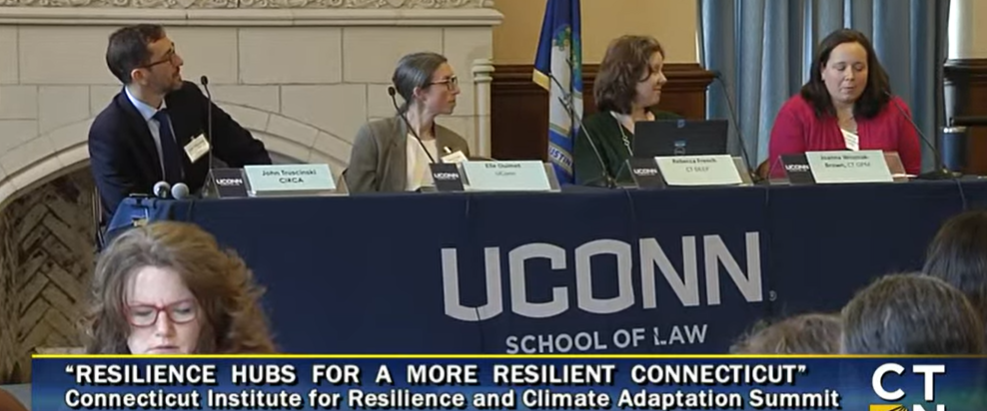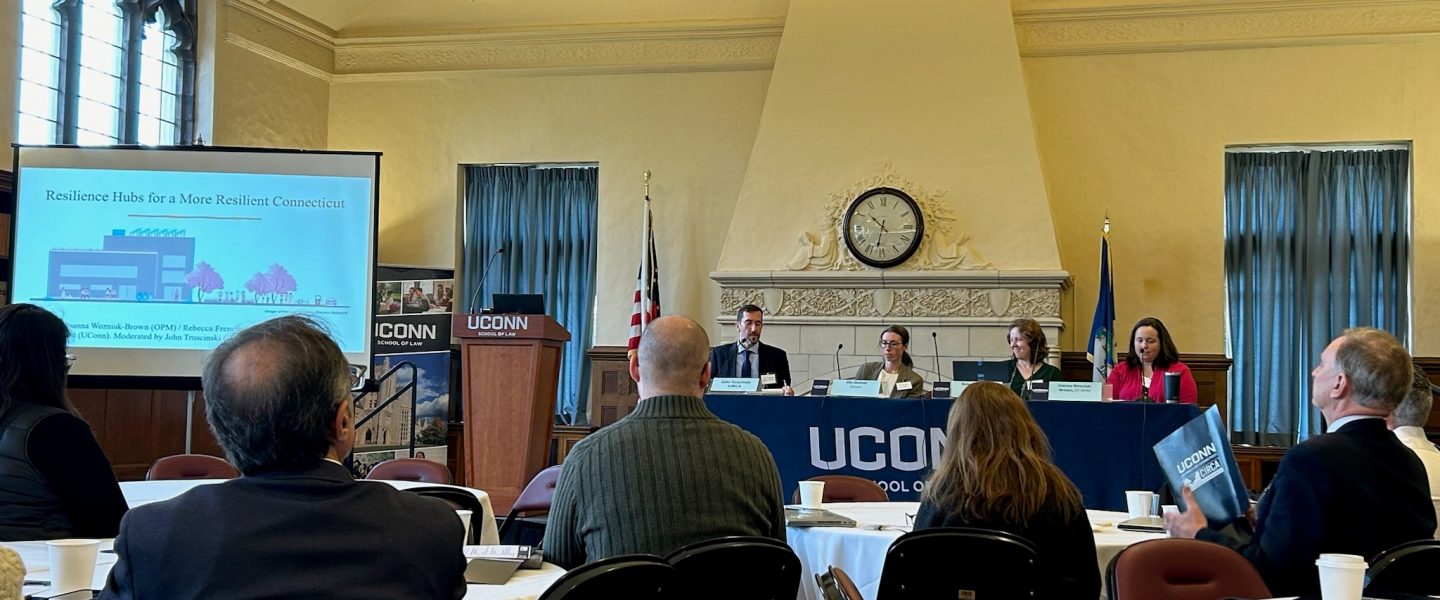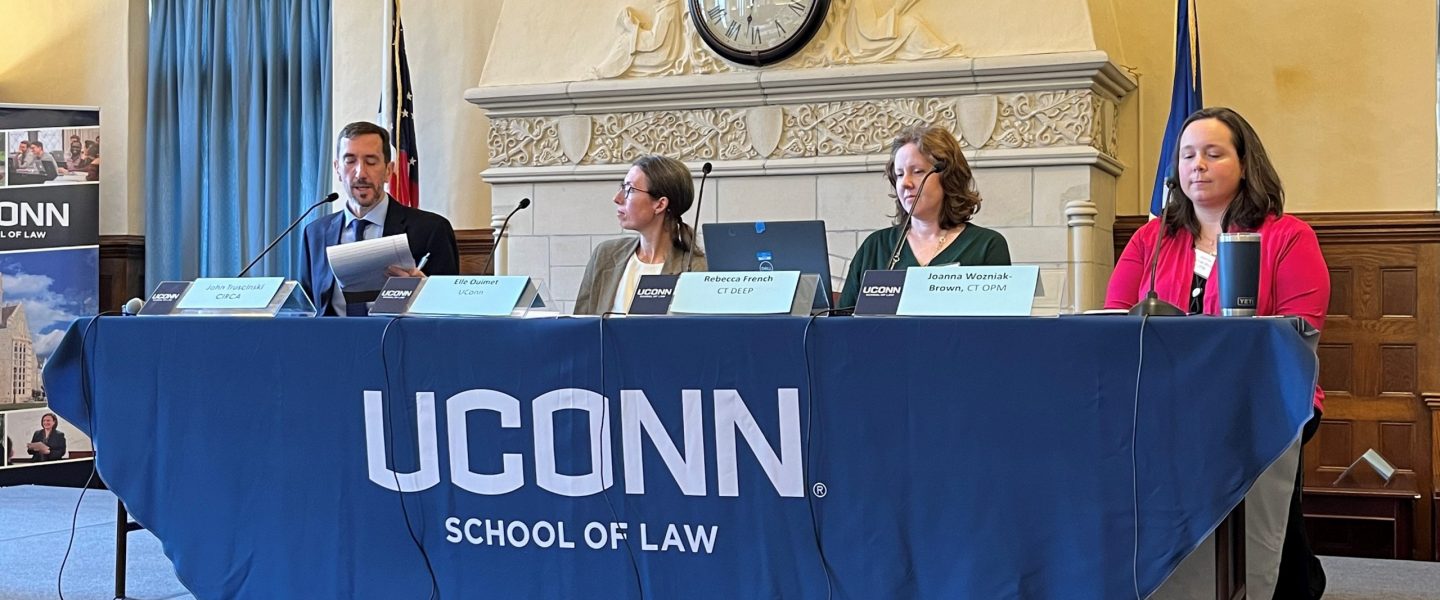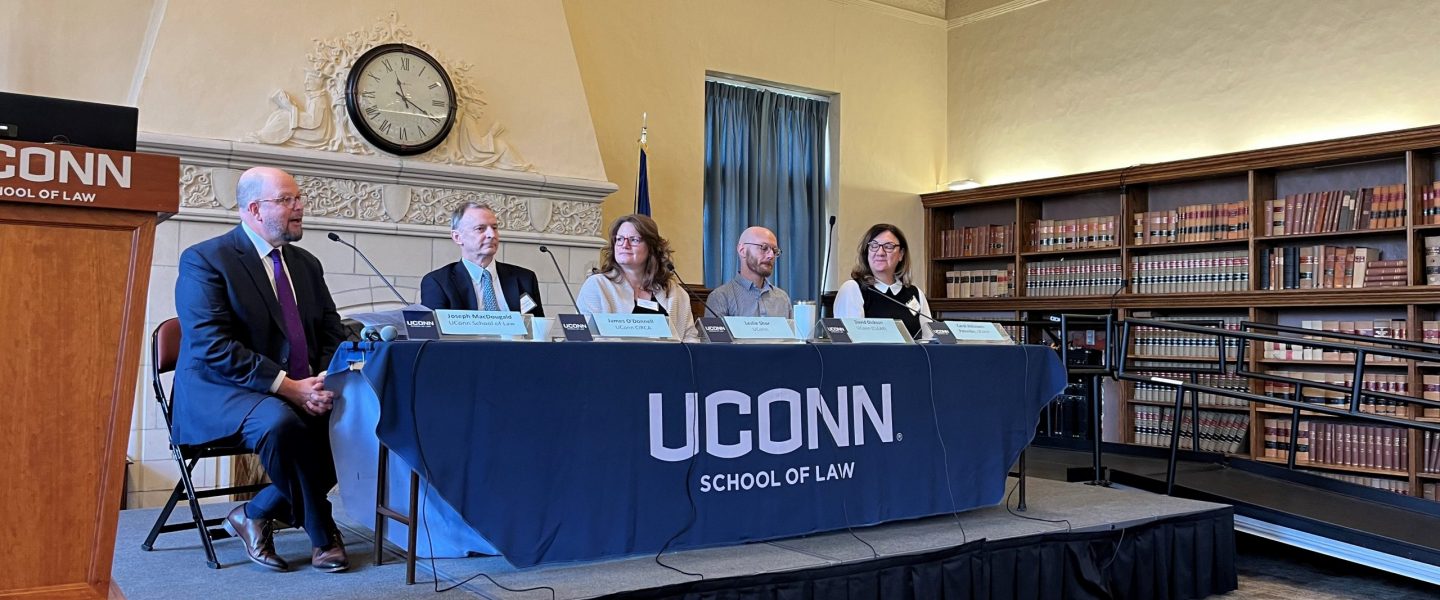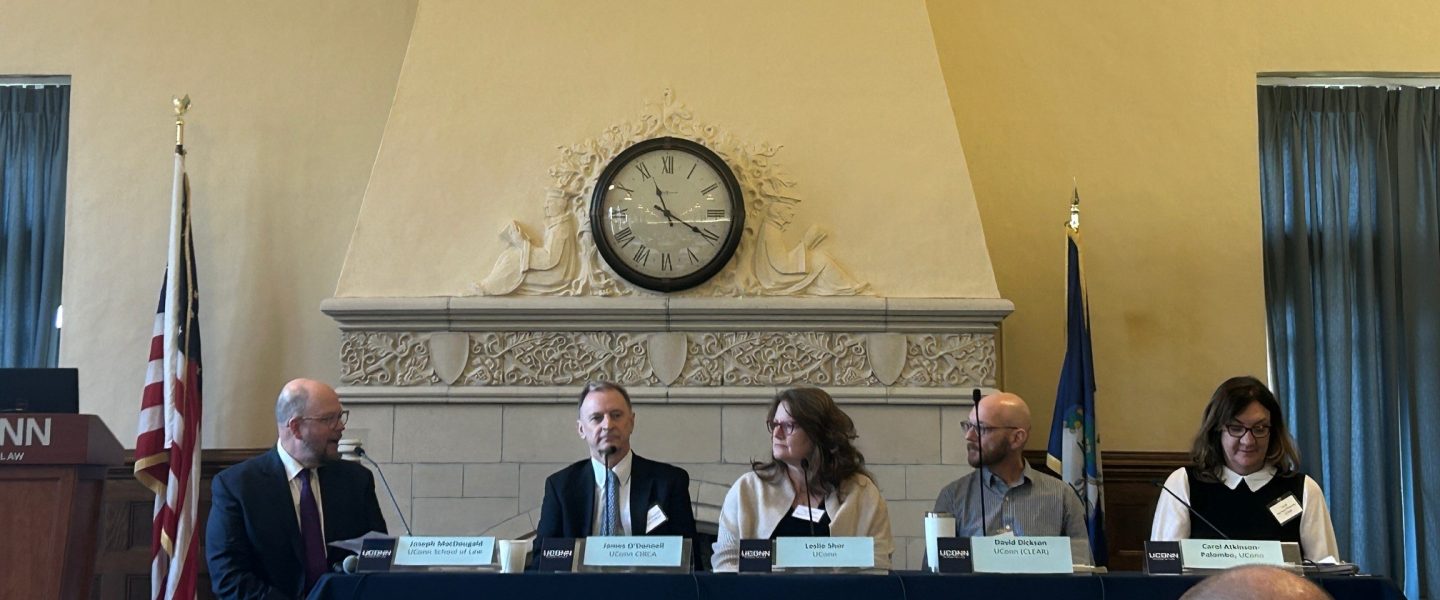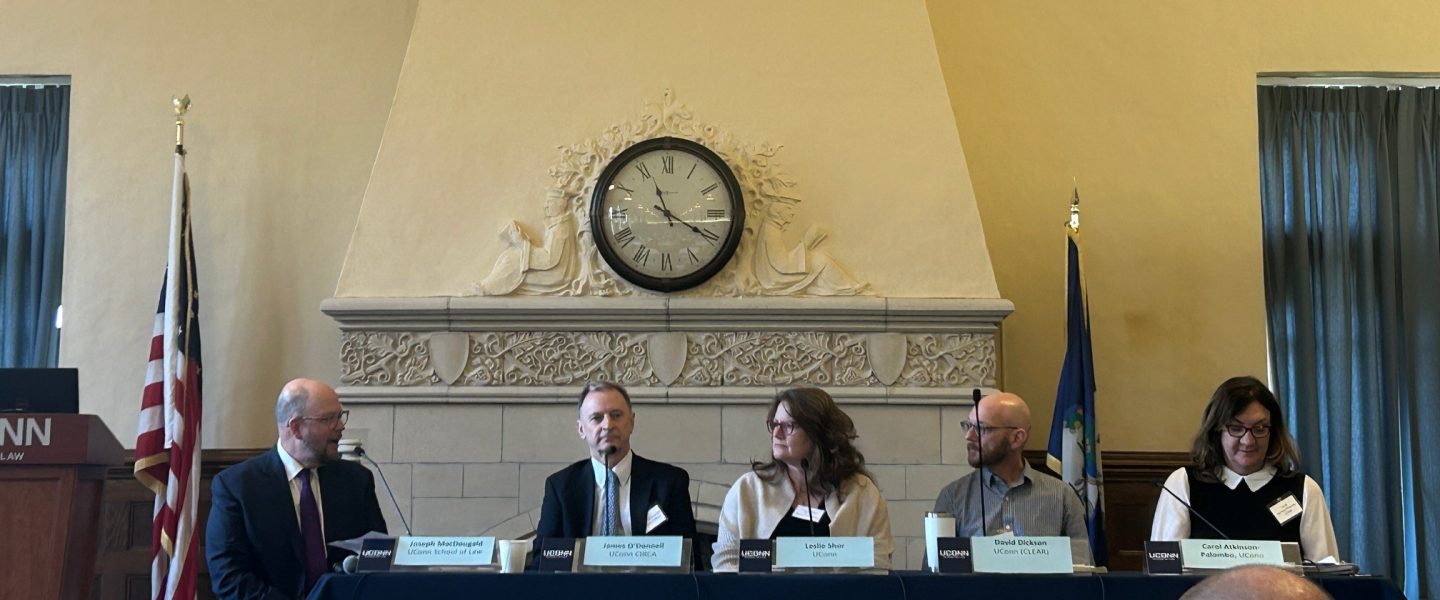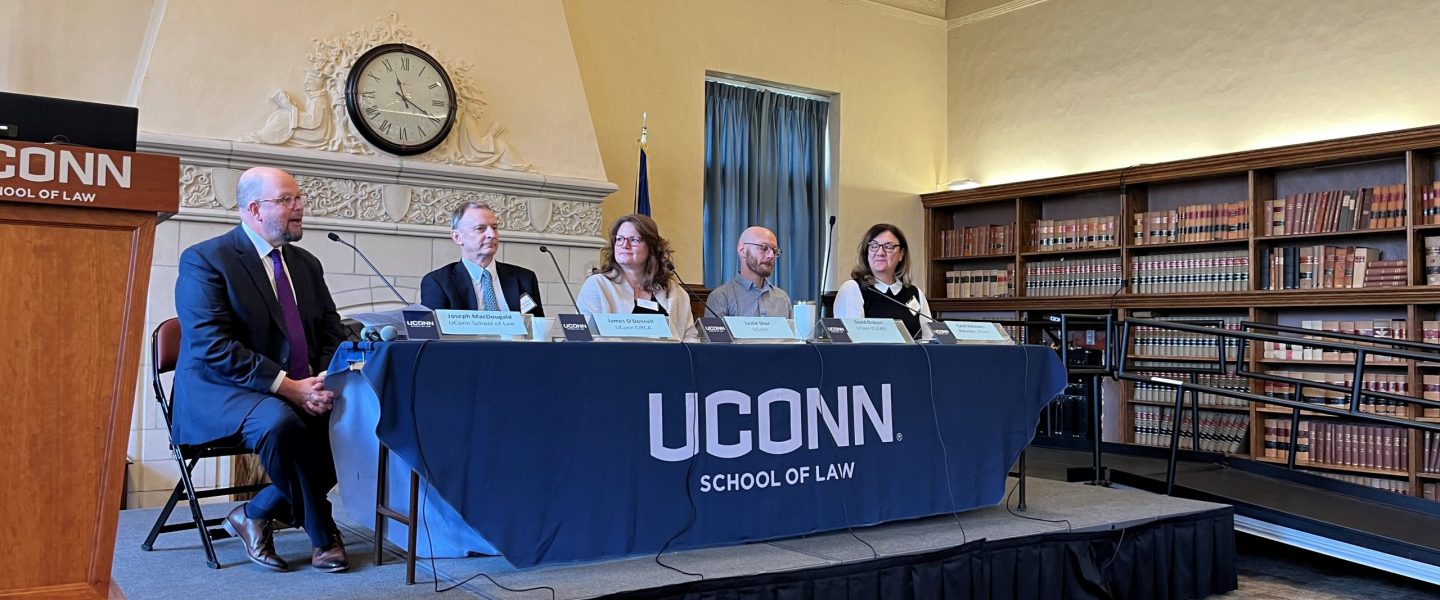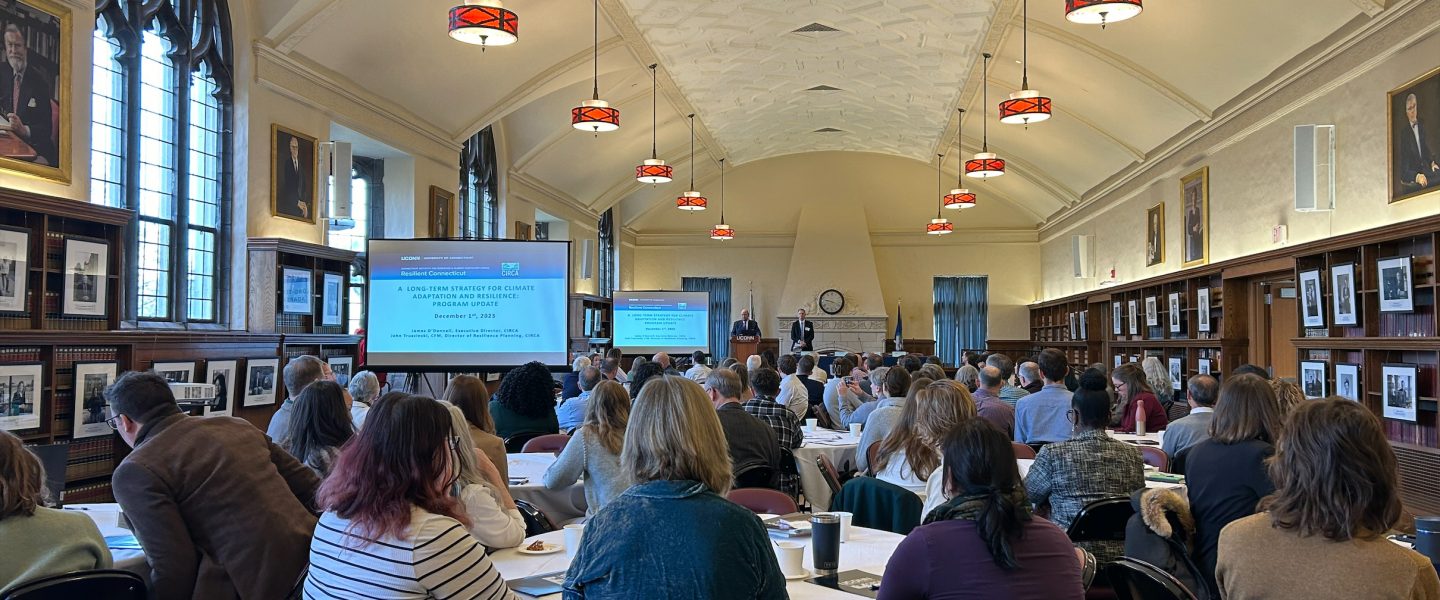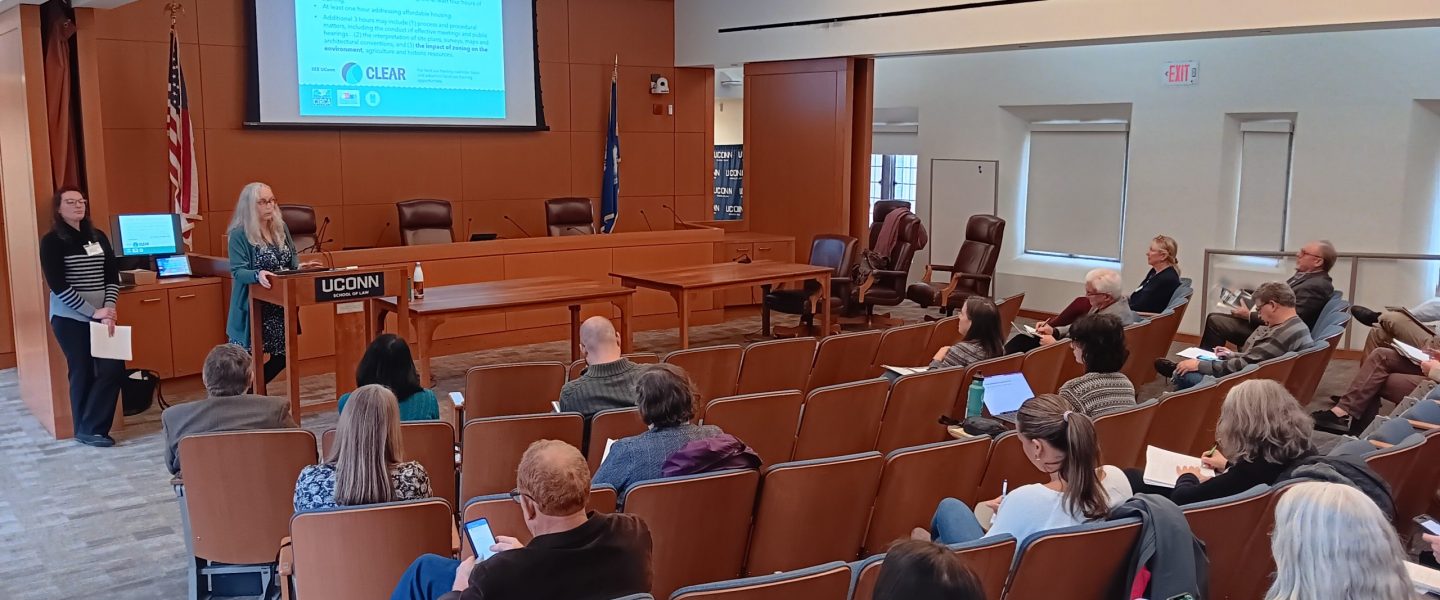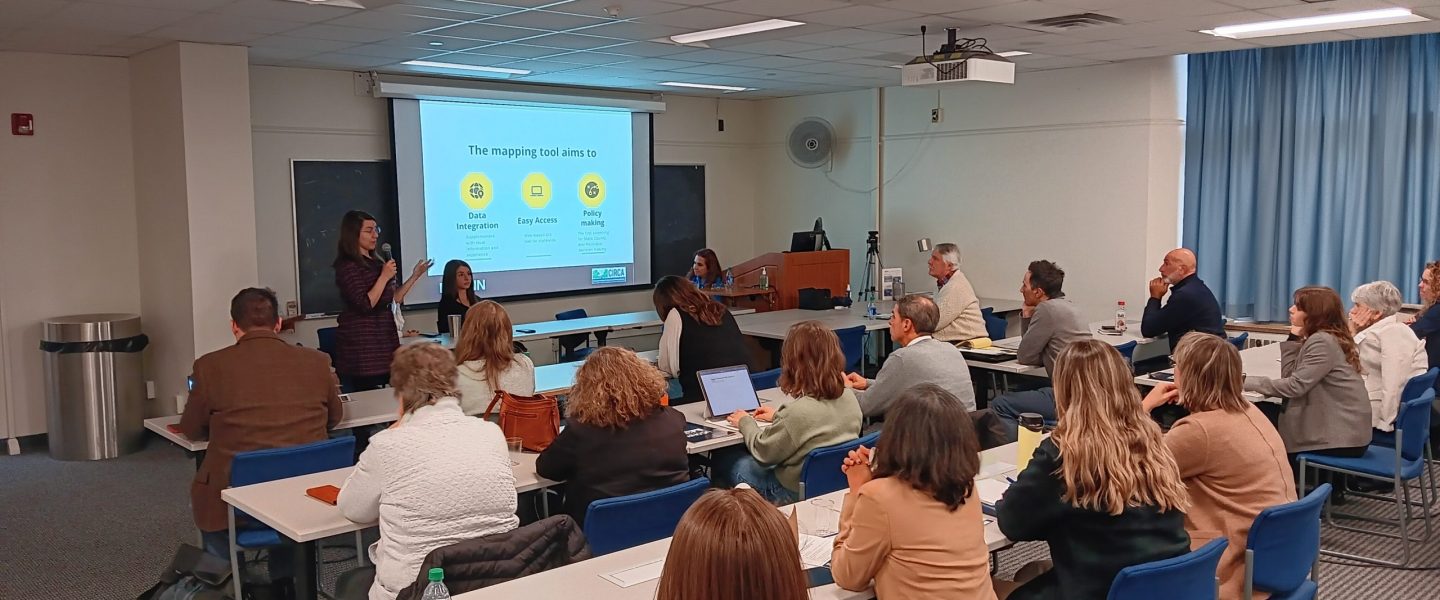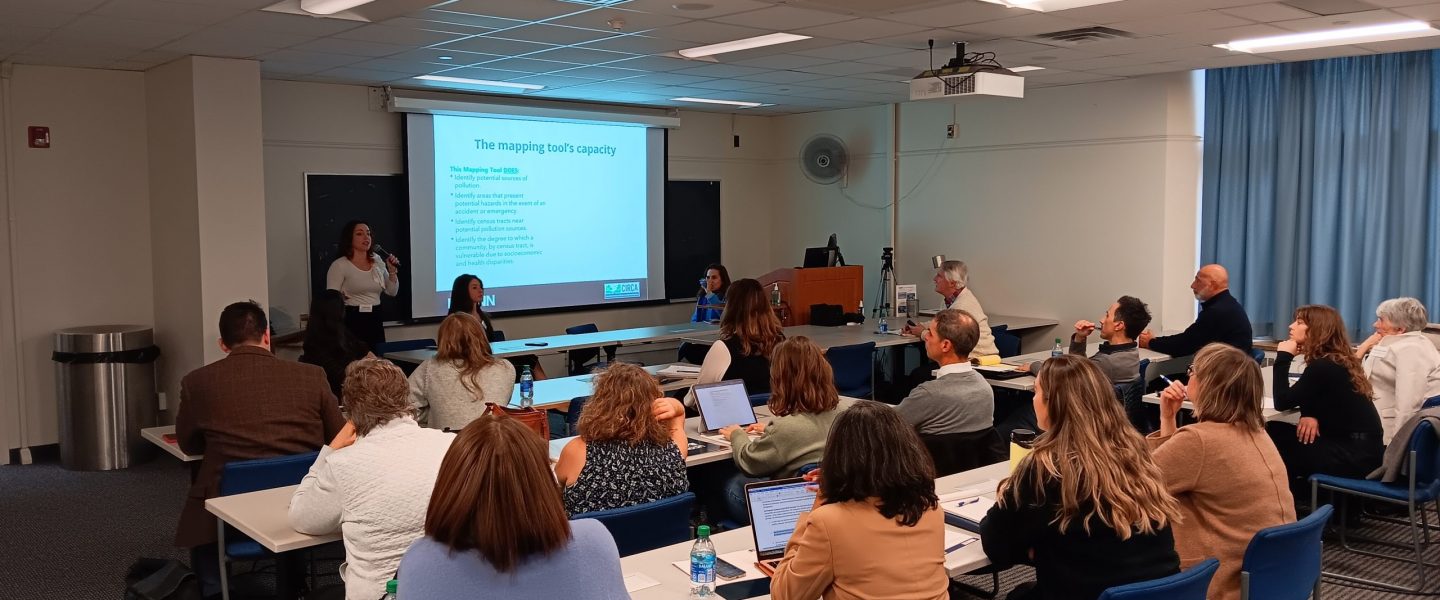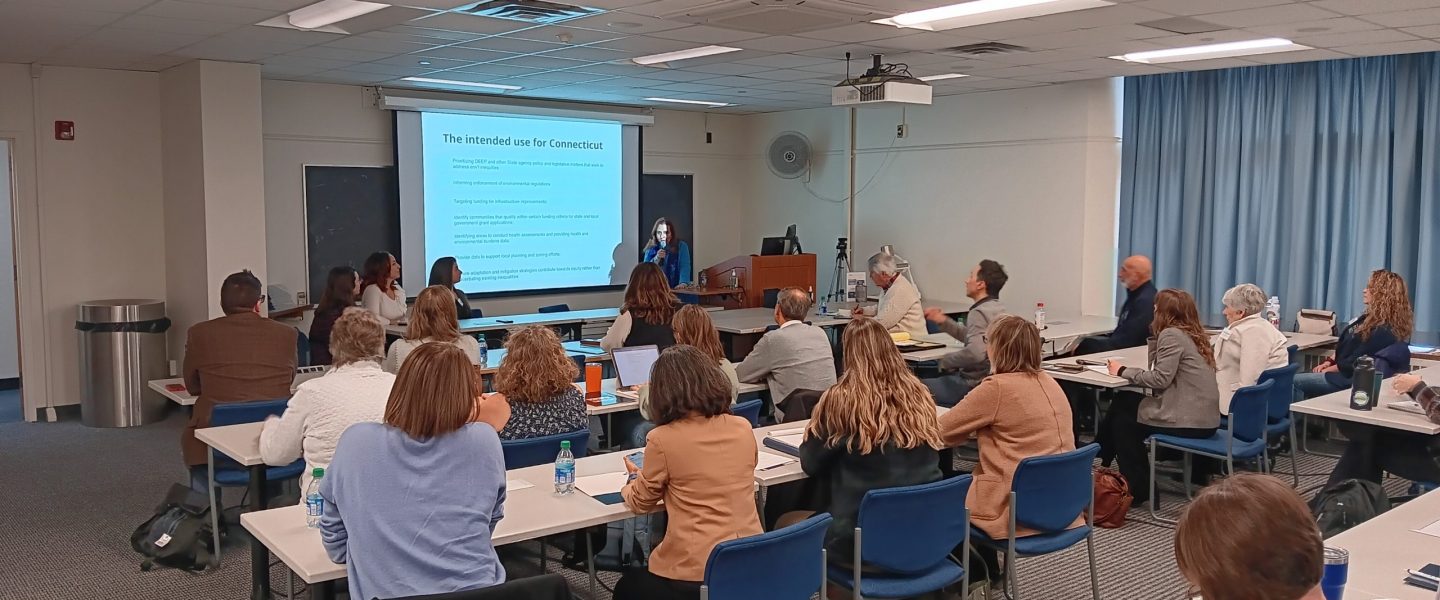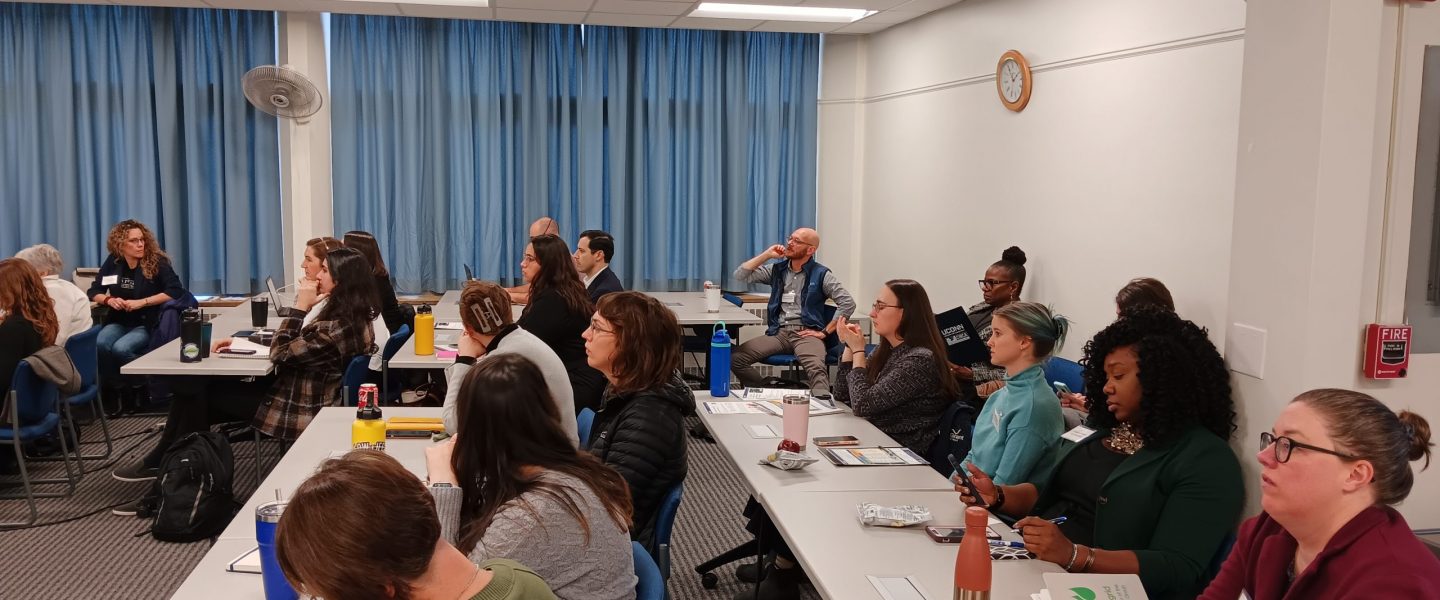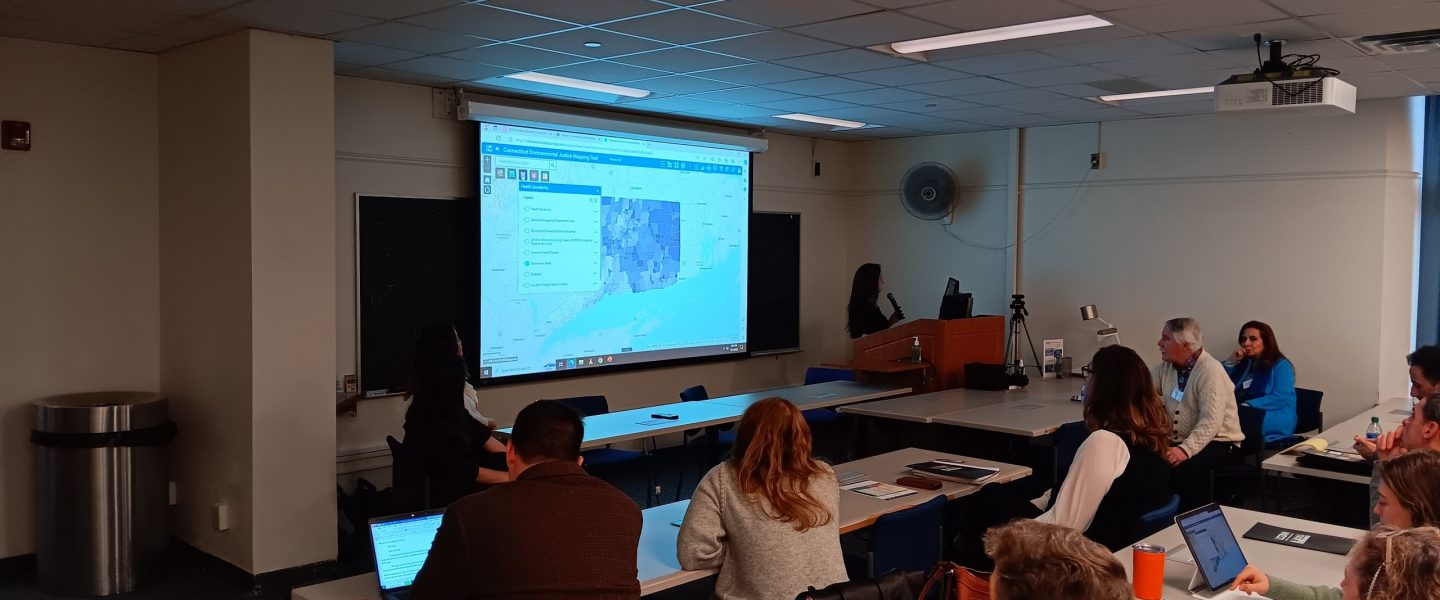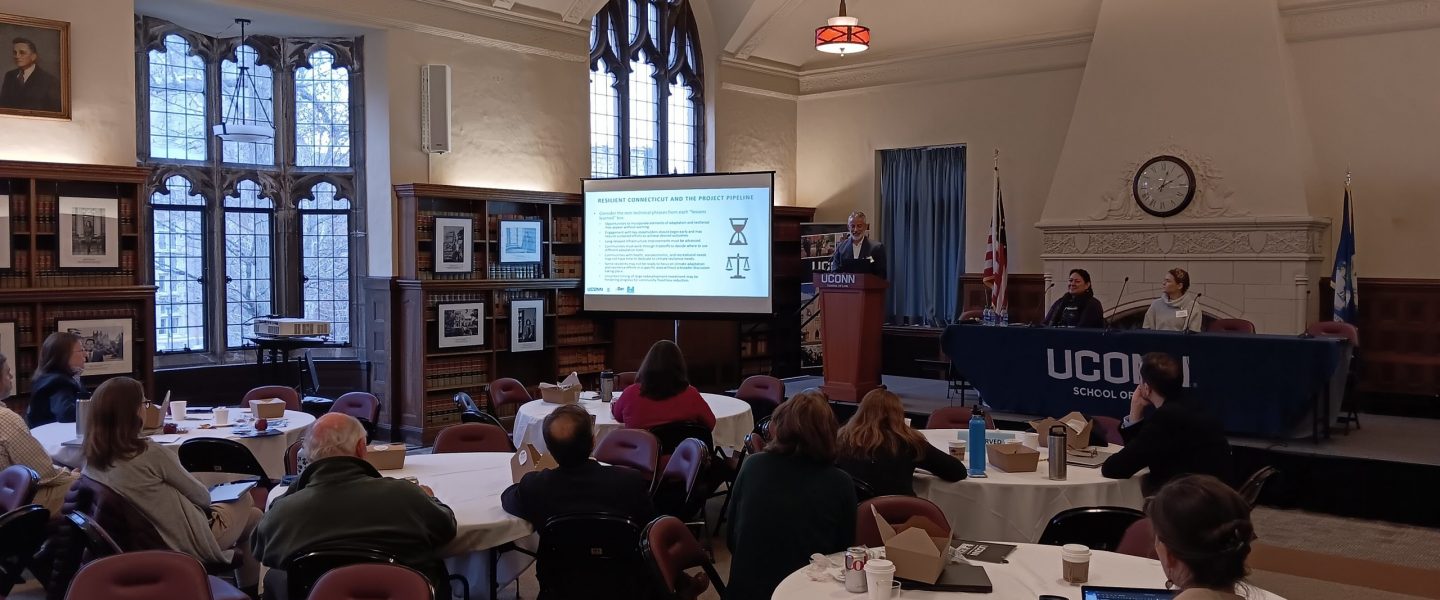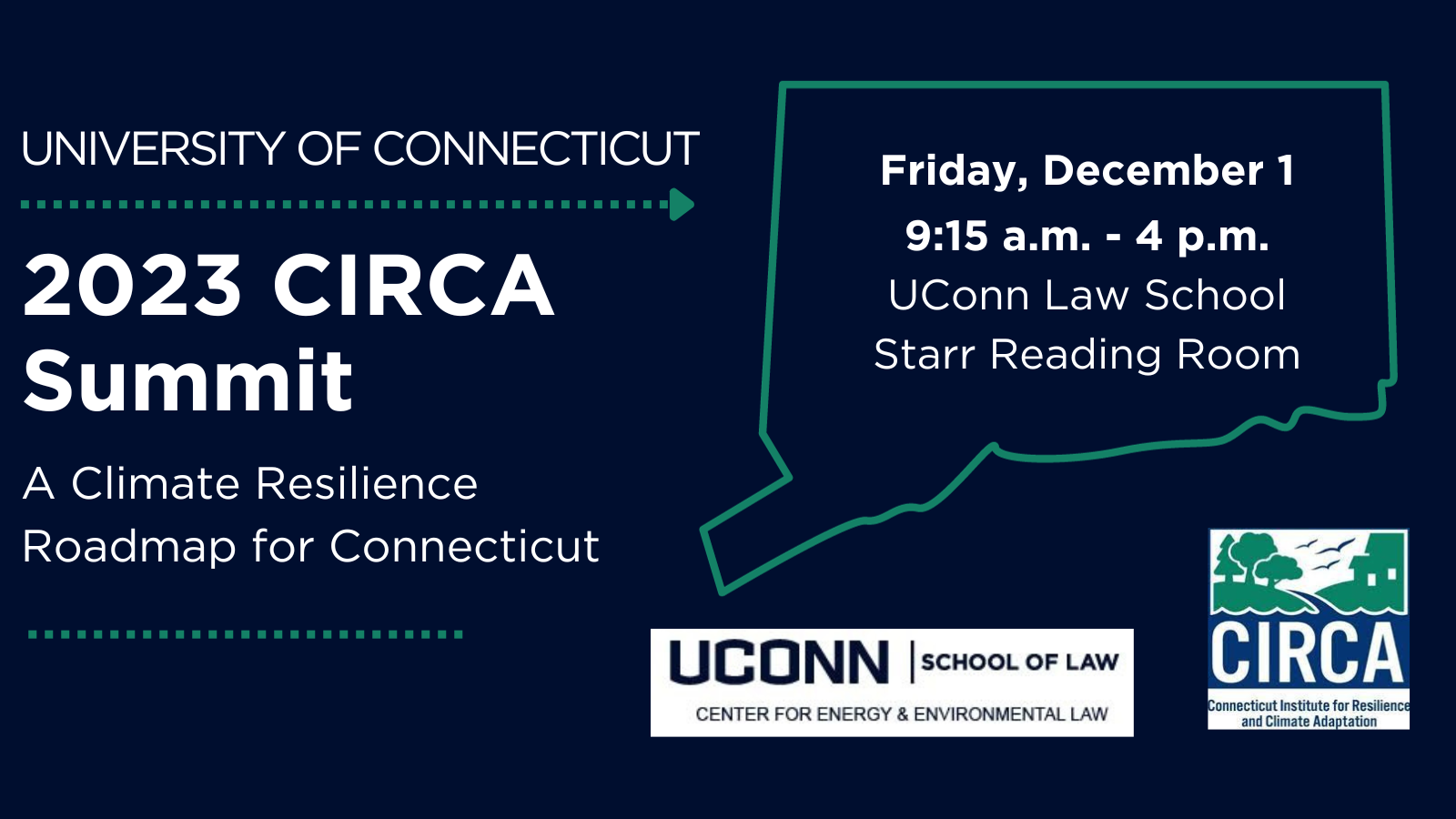
UConn's Connecticut Institute for Resilience and Climate Adaptation held a conference at UConn School of Law in Hartford on Dec. 1, 2023 to present an update on the Resilient Connecticut program, updates on projects including the Environmental Justice Mapping Tool and the Resilience Roadmap policy recommendations for Connecticut. The conference featured panel discussions with state and nationally known experts in climate resilience focusing on topics including the interdisciplinary nature of climate challenges and focus on equity in advancing climate solutions.
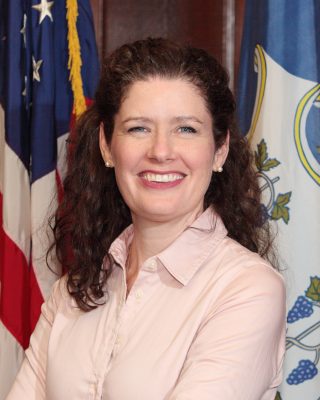
KEYNOTE SPEAKER Katie Dykes is the Commissioner of Connecticut’s Department of Energy & Environmental Protection (DEEP). She has served since 2019, when she was first nominated by Governor Ned Lamont, and was re-confirmed in February 2023 to serve in Governor Lamont’s second term. Katie previously served as Chair of the Connecticut Public Utilities Regulatory Authority (PURA) from 2015-2018, and as Deputy Commissioner for Energy at Connecticut DEEP from 2012-2015. Katie also serves as the Chair of the Board of Directors of the Regional Greenhouse Gas Initiative, Inc. (RGGI). Katie joined CT DEEP in March 2012 after prior service in the White House Council on Environmental Quality and the U.S. Department of Energy. She is a graduate of Yale College and the Yale Law School.
CIRCA 2023 Resilient Connecticut Project Update
Speaker: James O'Donnell (CIRCA), John Truscinski (CIRCA)
Summary: Jim O'Donnell, the Executive Director of CIRCA, along with John Trusciniski, the Director of Resilience Planning, provided a comprehensive overview of CIRCA's mission and programs, highlighting the breadth of projects and engagement within the institute since its inception.
Resilience Hubs for a More Resilient Connecticut
Summary: Resilience hubs are community-serving facilities, augmented to support residents and coordinate resource distribution and services before, during, and after a natural hazard event. Resilience hubs can increase bottom-up community-led resilience efforts by leveraging existing trusted and utilized spaces or facilities. In this session we’ll hear more about the resilience hub concept, and what challenges and opportunities exist for communities that want to implement them in CT.
Moderator: John Truscinski (CIRCA)
Panelists: Joanna Wozniak-Brown (OPM), Rebecca French (DEEP) and Elle Ouimet (UConn)
UConn Panel
Summary: How can the University’s climate programs be more effective at helping towns and the state address climate resilience? This panel featured a roundtable discussion between UConn leaders about how different programs can be more synergistic and coordinated in helping the state.
Moderator: Joe MacDougald (CIRCA)
Panelists: Jim O’Donnell (CIRCA), David Dickson (CLEAR), Carol Atkinson Palombo (UConn), Leslie Shor (UConn)
Breakout 1: CIRCA Phase III Projects (Phase III 1.0)
Summary: CIRCA is completing the Resilient Connecticut 1.0, Phase III projects in seven towns in Fairfield and New Haven Counties. The session gave an overview of the projects in Ansonia, Branford, Danbury, Fair Haven, Fairfield, South Norwalk and Stratford with lessons learned.
Presenter: David Murphy (CIRCA)
Panelists: Emmeline Harrigan (Planner Fairfield), Michelle Andrzejewski (Norwalk)
Slides: Phase III Lessons Learned
Breakout 2: Zoning for Resilience
Summary: The CIRCA legal team is developing a Climate Resilient Zoning library with resources on how to use zoning authority to address climate change vulnerabilities in municipalities. In 2021, the Connecticut Legislature passed Public Act 21-29 requiring municipal zoning officials to complete four hours of training by Jan.1, 2023, and biannually thereafter. We have taken the resources in the Climate Resilience Zoning library are created a training for land use officials that fulfills one hour of the training requirement and presented it live at the Dec. 1, 2023 CIRCA Summit. The training can also be accessed in three modules on the Climate Resilient Zoning website.
Presenters: Louanne Cooley (CIRCA), Kayla Vargas (CIRCA)
Slides: Zoning For Resilience
Breakout 3: CT Environmental Justice Screening Tool: Environmental Justice for Resilient Pathways through Geospatial Information
Summary: Environmental justice is a cornerstone of sustainable and resilient communities. The Connecticut Environmental Justice Screening Tool (CT EJ Screen) is dynamic GIS-based mapping tool that intricately combines environmental and demographic indicators to spotlight areas that may grapple with disproportionate pollution and health challenges.
This session is structured to provide an in-depth understanding of the CT EJ Screen, covering:
- An Introduction to the Tool: Dive into the rationale, design, and purpose of the CT EJ Screen, with insights into its potential to identify disproportionately burdened communities.
- Behind the Scenes of Tool Development: Explore the rigorous processes, community feedback, and stakeholder contributions that shaped this effort.
- Operational Insight: Hands-on demonstrations will guide participants through effective navigation and application of the tool for community assessment and intervention planning.
- Real-World Applications: Overview of case studies from the other states showcasing how similar tools have been utilized to inform policy, guide planning efforts, and support grant-writing endeavors; envision possible similar applications with CT EJ Screen.
- Engaging Discussions: Participate in enlightening conversations on challenges, best practices, and forward-looking strategies for embedding environmental justice insights into planning and policy-making.
Our goal is not just to introduce participants to this state-of-the-art tool, but to empower planning professionals, decision-makers, and community advocates with the knowledge and expertise required to harness the CT EJ Screen. This session is for those committed to advancing a more equitable, and resilient Connecticut through data-driven insights and actions.
Presenters: Yaprak Onat (CIRCA), Mary Buchanan (CIRCA), Libbie Duskin (CIRCA) and Edith Pestana (CT DEEP)
Breakout 1: CIRCA Phase III 2.0 Project
Summary: The Resilient CT program has expanded statewide, with the planning process for the RiverCOG and SCCOG regions completed in 2023. Four Phase III projects will commence in January 2024, addressing different kinds of risks in Stonington/Mystic, East Haddam, Portland, and Jewett City. This session provided an overview of the goals of the new projects and included interactive polling to help participants understand the types of choices needed to adapt.
Presenter: David Murphy (CIRCA)
Breakout 2: Municipal Roadmap with a focus on Municipal Energy Resilience
Summary: This session presented common themes and challenges that emerged from the Resilient CT planning process in Fairfield and New Haven Counties (Resilient CT 1.0). The second presentation focused on how municipalities can take advantage of recent Federal programs under the Inflation Reduction Act (IRA), to support projects and actions that improve the resilience of local energy infrastructure.
Presenters: John Truscinski (CIRCA) / Kirt Mayland (CIRCA)
Slides:Municipal Roadmap Energy
Breakout 3: Data Equity for Enhanced Resilience: Bridging Gaps, Facilitating Sharing, and Shaping Tomorrow’s Plans
Summary - In the age of rapidly evolving environmental challenges and expanding urban landscapes, the need for resilient planning and adaptive management is imperative. Central to this is the appropriate and equitable sharing and utilization of resilience data. This session delves deep into the opportunities and challenges tied to resilience data, offering a comprehensive panel discussion on its multifaceted role in shaping a more resilient Connecticut.
Moderators: Nicole Govert (CIRCA) and Yaprak Onat (CIRCA)
Panelists: Alfredo Hererra (OPM), Pauline Zaldoni (OPM), Debs Ghosh (UConn), and Ashley Benítez Ou (DEEP), and Greg Ciparelli (CT DOT), Yaprak Onat (CIRCA) & Nicole Govert (CIRCA) as moderators.
Agenda
| 9:15-9:45 | Arrival, registration, coffee |
| 9:50-10 | Welcome |
| 10:00-10:20 | Resilient Connecticut Presentation |
| 10:20-11:00 | Session 1 – Resilient Hubs for a More Resilient CT: Hear more about the resilience hub concept, and what challenges and opportunities exist for communities that want to implement them in CT. |
| 11:00-11:15 | Morning break |
| 11:15-12:30 | Session 2 – UConn Panel: Roundtable discussion between UConn leaders about how different programs can be more effective and coordinated in helping state resiliency efforts. |
| 12:30-1:30 | Lunch with Keynote Speaker |
| 1:30-3:30 | Afternoon Breakouts |
| 1:30-2:20 | Breakout 1
Track 1: CIRCA Phase III projects - Starr Reading Room |
| 2:20-2:30 | Afternoon break |
| 2:30-3:30 | Breakout 2 Track 1: CIRCA Phase III 2.0 ROARs and project discussion - Starr Reading Room Track 2: Municipal Roadmap with a focus on Municipal Energy Resilience - Starr 204 Track 3: Data Equity for Enhanced Resilience: Bridging Gaps, facilitating Sharing, and Shaping Tomorrow's Plans - Starr 225 |
| 3:30-4:00 | Closing and Networking |
Funding for this project is provided by the United States Department of Housing and Urban Development through the Community Block Grant National Disaster Recovery Program, as administered by the State of Connecticut’s Department of Housing. The Summit is being planned in partnership with UConn School of Law CEEL.


